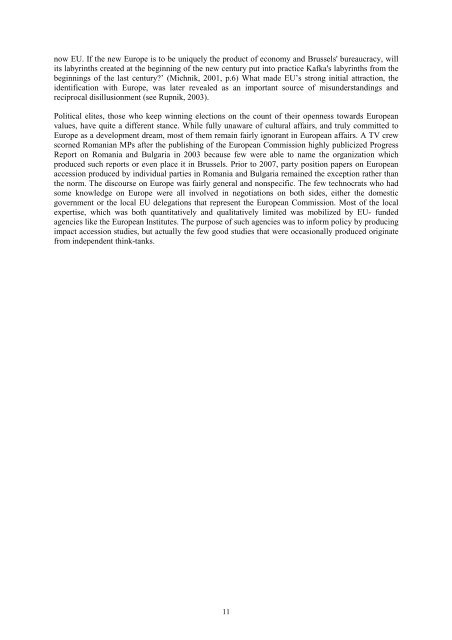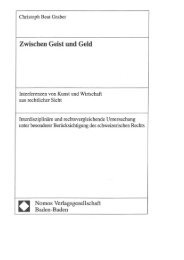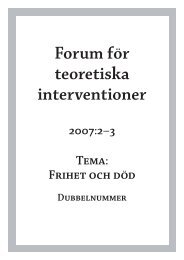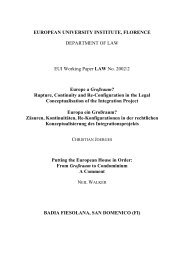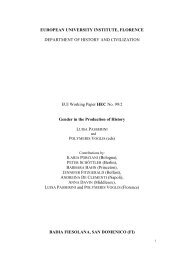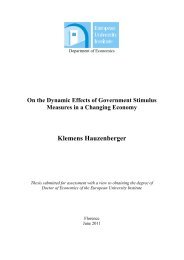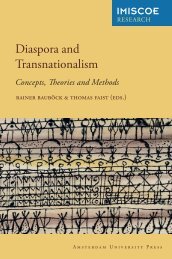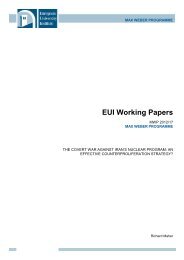Sinziana-Elena Poiana Ioana Lupea Irina-Madalina Doroftei Alina ...
Sinziana-Elena Poiana Ioana Lupea Irina-Madalina Doroftei Alina ...
Sinziana-Elena Poiana Ioana Lupea Irina-Madalina Doroftei Alina ...
You also want an ePaper? Increase the reach of your titles
YUMPU automatically turns print PDFs into web optimized ePapers that Google loves.
now EU. If the new Europe is to be uniquely the product of economy and Brussels' bureaucracy, will<br />
its labyrinths created at the beginning of the new century put into practice Kafka's labyrinths from the<br />
beginnings of the last century?’ (Michnik, 2001, p.6) What made EU’s strong initial attraction, the<br />
identification with Europe, was later revealed as an important source of misunderstandings and<br />
reciprocal disillusionment (see Rupnik, 2003).<br />
Political elites, those who keep winning elections on the count of their openness towards European<br />
values, have quite a different stance. While fully unaware of cultural affairs, and truly committed to<br />
Europe as a development dream, most of them remain fairly ignorant in European affairs. A TV crew<br />
scorned Romanian MPs after the publishing of the European Commission highly publicized Progress<br />
Report on Romania and Bulgaria in 2003 because few were able to name the organization which<br />
produced such reports or even place it in Brussels. Prior to 2007, party position papers on European<br />
accession produced by individual parties in Romania and Bulgaria remained the exception rather than<br />
the norm. The discourse on Europe was fairly general and nonspecific. The few technocrats who had<br />
some knowledge on Europe were all involved in negotiations on both sides, either the domestic<br />
government or the local EU delegations that represent the European Commission. Most of the local<br />
expertise, which was both quantitatively and qualitatively limited was mobilized by EU- funded<br />
agencies like the European Institutes. The purpose of such agencies was to inform policy by producing<br />
impact accession studies, but actually the few good studies that were occasionally produced originate<br />
from independent think-tanks.<br />
11


